The weirdest border town you've never heard of
Life in a town between the lines
Point Roberts is the oddest place in the U.S. that you’ve never heard of.
After learning about it while discussing regulatory arbitrage with Andrew Miller and Emma McAleavy (yeah, I go to the best parties), I decided to check the place out for myself. This is the story of the day I spent learning about all the peculiarities that come with living in an American exclave dangling off the edge of Canada.
Driving from anywhere in the U.S. to Point Roberts requires crossing the U.S.-Canadian border twice. That’s because the community exists on a tiny outcropping of land (less than five square miles) to the south of Vancouver, Canada. It’s surrounded by water to the east, west, and south, by Canada to the north, and is physically separated from the rest of the contiguous United States.
Like many things in this world, Point Roberts owes its existence to historical accident. In the mid-1800s, American and British diplomats signed a treaty formalizing the boundary between the U.S. and Canada. The border was defined as the 49th parallel which seemed fine based on then-existing maps; but when a joint boundary commission was sent out a couple years later, the surveyors realized that the border left a tiny sliver of the Tsawwassen peninsula on the American side.1
Getting to Point Roberts, I initially took an Uber down from Vancouver. As it turns out, Canadian Ubers won’t drive into the U.S., so I crossed into Point Roberts on foot. The first thing that jumped out at me was how immediately the built environment changed. The Canadian side is solidly suburban and, except for the Canadian flags, could be any American sunbelt subdivision built in the last twenty years.
The American side, in contrast, is noticeably exurban. It's also the opposite of walkable. There’s a single road connecting the town with the border and this main drag, Tyee Drive, is what I strolled down on my way into town.2
After forty-five minutes of hoofing it, I arrived at the Point Roberts Community Center. The town food bank was hosting its weekly lunch and this is where I had my first conversations with the locals.
One gentleman gave me a thirty-minute interview on his life in the town, explaining that Point Roberts is a place full of transplants. Apparently, a major reason for living there is because you have family in Vancouver, but you’re American (and immigration is a pain) or else just want to avoid Vancouver’s cost of living.3
Beyond the proximity to Vancouver, though, folks just seem to like living there. One resident called the town “a place of refuge from the daily grind”; another described it as “a breath of fresh air from the chaos of a lot of what's going on.”
That sense of separation or apartness isn’t totally vibes-based, either.
Administratively, Point Roberts is strange. There’s no mayor, city council, or even City of Point Roberts qua legal entity. When I asked how the community goes about the work of local government, the answer was fascinating.
The town exists in unincorporated Whatcom County, meaning political representation and service provision all takes place at the county level. Now, communities on unincorporated county land are not unheard of, but Point Roberts’ geographic and jurisdictional isolation makes things a touch weird.
Since there’s no city government, the administratively closest organ of state is the Whatcom County Council. However, none of the council members actually live in Point Roberts. So, to bridge the gap, the community created the Point Roberts Community Advisory Committee. This body represents the interests of Point Roberts with Whatcom County, but has no legislative authority or administrative power. It exists purely to communicate with the county government and advocate on behalf of the residents.
Here again, not completely out of left field. But as I continued asking questions, I stumbled into a conversation about who serves on the committee and how they get selected.
The committee is composed of seven members; five seats are at-large, appointed by the Whatcom County Executive, and another two seats are reserved for representatives from the Point Roberts Taxpayers Association and the Point Roberts Voters Association, respectively. Typically, representative government in the U.S. is assumed to be some elected official chosen by a group of people living in some geographically contiguous area.4 The Community Advisory Committee breaks both those assumptions.
In terms of the appointed seats, it looks more like a city planning commission (these are usually staffed at the direction of a mayor). The Taxpayer and Voter Association seats, though, make it look almost like the Hong Kong Legislative Council; the Legislative Council reserves seats for representatives of trade groups and is set up with different assumptions about who has power and therefore needs to be involved in collective decision making. I’ve never seen anything like that in American local government and it was interesting to find it tucked away in Point Roberts.
For transportation, folks are car dependent. Given the semi-rural development pattern, this isn’t a surprise. That said, the community does get support for transit from the county. In lieu of bus service (which would make zero sense), the county funds a community organization that provides a free van service — the Raven Van (which I got to ride during my visit).
John, the driver on shift, saw me wandering around and asked if I needed a lift. I wasn’t quite ready to head back to the border, so he had me call the number on the side of the van when I was ready to get picked up and just swung by.
Now, the zoomers in the audience might be wondering how all that worked without an app. Well, I just told him I was in front of the realtor’s office (the red one next to the one gas station with the blue awning) and John was there in five minutes. The whole experience was a bit of a throwback to a more analog time and, aside from causing me to reminisce about things like not taking my shoes off at the airport, saved me 45 minutes walking back to the border.
The Raven van serves two related purposes. First, it helps folks with mobility issues get around town. Beyond that, it also takes people up and around (i.e. does the double border crossing) if they need to go somewhere like Bellingham in mainland Washington. Given that something like half the population in Point Roberts is over 60 years old, this seems like a critical service.
If you check out the website, you’ll notice it’s quite barebones. The scheduling page is a google form and the contact address is a standard gmail. That’s not to cast any aspersions, mind you. The service seems to work for the community (and is probably a good use of funds), but it does give you a sense of how the town works.
Government and transportation aside, there’s something else unique about life in Point Roberts which most of us take for granted (until we suddenly don’t): medical care.
Point Roberts has no hospital. Even its urgent care clinic is apparently open only a couple days a week. This might lead you to assume that folks just go up to Vancouver in the event of a medical emergency. Amazingly, they can’t.
If you have a heart attack or other acute medical issue on U.S. soil, you can’t just go to a Canadian hospital; even though it makes the most logistical sense, residents of Point Roberts aren’t entitled to access to the Canadian health care system. What happens instead is you get airlifted via helicopter across the water to the hospital in Bellingham.
Now, this might lead you to assume the helicopter is a public service. It is not.
The medical airlift is run by a private company and folks pay a subscription fee for the service. Really this is more like just an extra kind of insurance where you’re better off paying the premium just in case. If you don’t sign up, they’ll still take you, of course, but you’ll end up paying full freight for the ride and the five EMTs that come along with it.
The reality of the border shapes everything about life in Point Roberts. When the current administration adjusts tariffs based on the President’s blood sugar, those policy changes are immediate and tangible.
One resident explained that she frequently crosses the border for groceries. In theory, the daily duty free limit for merchandise coming from Canada is $200 USD. Any more than that and they’re supposed to pay the additional 25% duties that went into effect in March. Similarly, if a resident buys lumber for a home renovation project in Canada, they not only have to keep the total value under duty thresholds, they may also have to prove that the material isn’t for commercial use.
There’s one last dimension to life in Point Roberts that I found fascinating and that was how the residents think of themselves. When I asked one person who’d relocated from the east coast whether Point Roberts felt American, she responded with an emphatic kinda.
Talking about U.S. - Canadian relations (from the perspective of Point Roberts), she said:
We had an event called Hands Across the border just about two weeks ago, up at the northwest corner park up there, and it's called Monument Park, and so the Canadians came to their side, and we were on our side, and we were shaking hands and singing songs and all that kind of stuff, and just saying, we appreciate you so much. And, you know, we feel like we spend a lot of time over there. I'm over there, many, many times a week for coffee, for meeting up with friends.
For her, the border is quite porous, not just materially, but socially and culturally as well.
This seemed to be a broadly held sentiment, at least amongst the folks I spoke to directly. Part of that, though, is buttressed by the fact that something like 50% of Point Roberts residents are either Canadian nationals or hold dual citizenship in both the U.S. and Canada. I imagine that being in a community like that just makes everyone’s nationality less important. Obviously, the fact that folks all share the same language likely helps make national origins less salient as well.
In a certain way, there was a subtle sense of the in-betweenness you get in major port cities that grew up between different cultures. For me, it actually brings Hong Kong to mind. Now, I don’t want to overplay this — the distance between last century Cantonese merchants and the British administrative class was obviously much wider than the the distance between mainstream culture in Canada and the U.S. That said, that’s kind of the vibe I was getting throughout the day.
One last thing I noticed was how much the community manages to do for itself.
The town boasts a well-appointed library which, I came to learn, was built with local donations. Apparently, a couple people organized a fundraising campaign and managed to get it done. Personally, I find that level of community spirit laudable (I’m also a sucker for a library) and it’s reminiscent of the kind of community organizing my friends at Strong Towns love to see.
It’s also not the first time I’ve seen folks self-organize in the absence of an engaged government ready to provide public services or solve collective action problems. That said, removing formal government doesn’t automatically beget informal localism. The community had the resources to pay for a new library; a community without the requisite level of wealth (and also no governmental support), would just not have a library.
And maybe Point Roberts makes that point as-is. After all, there’s still no town hospital and presumably providing that level of medical infrastructure is beyond the community’s current collective level of wealth.
Point Roberts is an oddly fascinating place, seemingly full of people that really like living there. The odd conditions that define its contours — politically, historically, and topographically — make it unique in a thousand tiny ways. Most places I’ve gone, anywhere in the world, share some baseline set of commonalities and while I certainly didn’t feel like I was conversing with martians, everything about how folks in town talked about their lives felt just slightly askew.
But maybe Point Roberts reinforces my mental model of the world in a different way. Ultimately, I believe culture is downstream of material conditions. Those conditions, however, interact with the rules we adopt to coordinate human society. So, despite the odd angles to life in Point Roberts, there’s nothing there that doesn’t track back to peculiarities of geography and jurisdiction that make the place everything that it is.
Postscript
I was advised this was too good to cut, so here it is.
There’s a persistent rumor that Point Roberts is full of people in the U.S. Witness Protection Program. The idea is that because it’s hard to get to and usually requires crossing the U.S.-Canadian border twice, it’s insulated from contract killers sent after people turned State’s Witness. While I wasn’t able to validate this, I did bring it up with folks in town. One gentleman acknowledged the rumor, gave me what may have been a knowing look, and declined to elaborate further.
More concretely, though, there was a dramatic incident in 2009. Former reality star Ryan Jenkins allegedly killed his wife, fled Los Angeles to Point Roberts (he seems to have crossed from the mainland to the town by boat), and then illegally crossed the border into Canada from there.
He was later found dead in a Vancouver hotel room. The death was ruled a suicide and no legal determination was ever made given his unavailability to stand trial.
After the mistake was recognized, the British allegedly floated the idea of taking the extra bit of land. The American response boiled down to a deal’s a deal.
The road was one lane of traffic going in either direction with basically no shoulder bordered by thick brush and a steep ditch, so not a lot of space to get out of the way of passing cars. It actually brought back memories of other ill-advised things I did as a teenager in Texas.
Point Roberts to Vancouver, depending on traffic and where you’re going in the city, is something like an hour.
The existence of U.S. gerrymandering buttresses the point. Even when we’ve effectively thrown out the idea of assigning representation to groups of people living in some semblance of a community, we still cling to the charade because it’s such a deeply ingrained assumption in our political system.


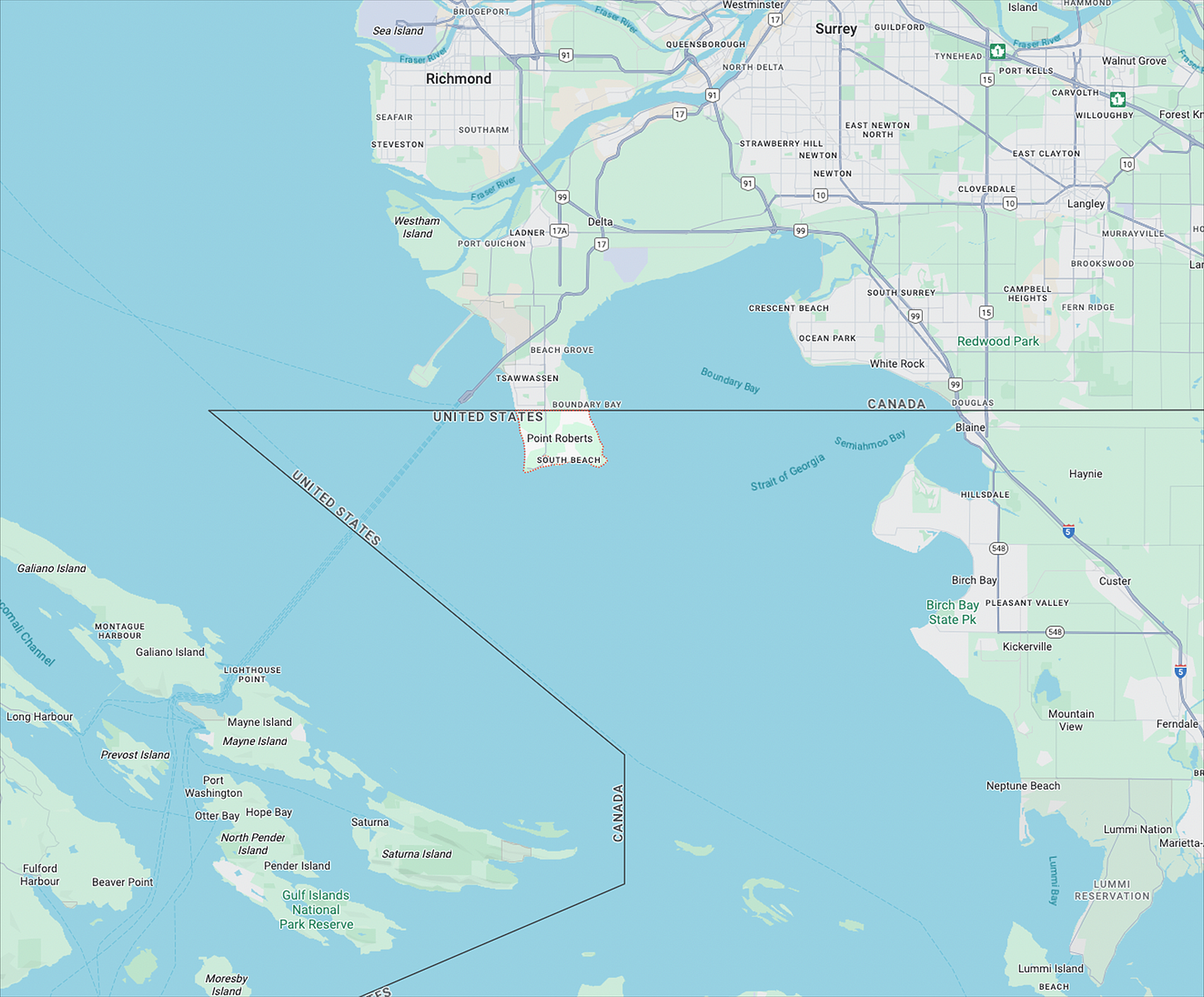
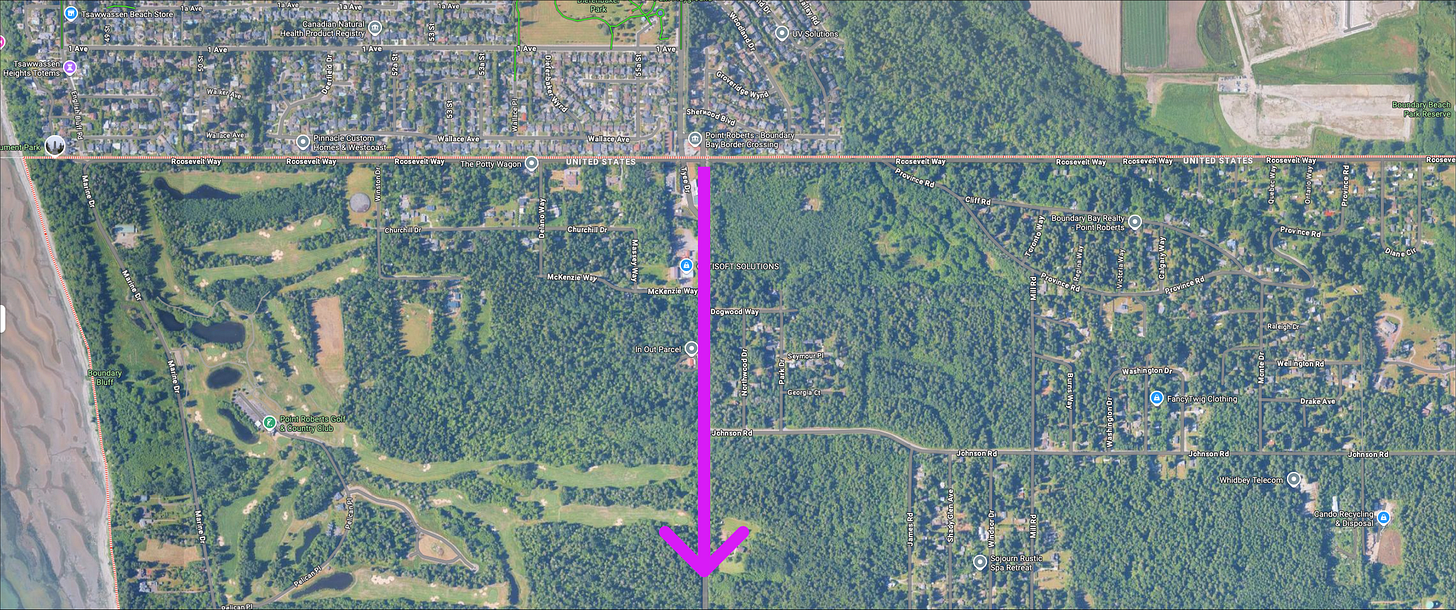
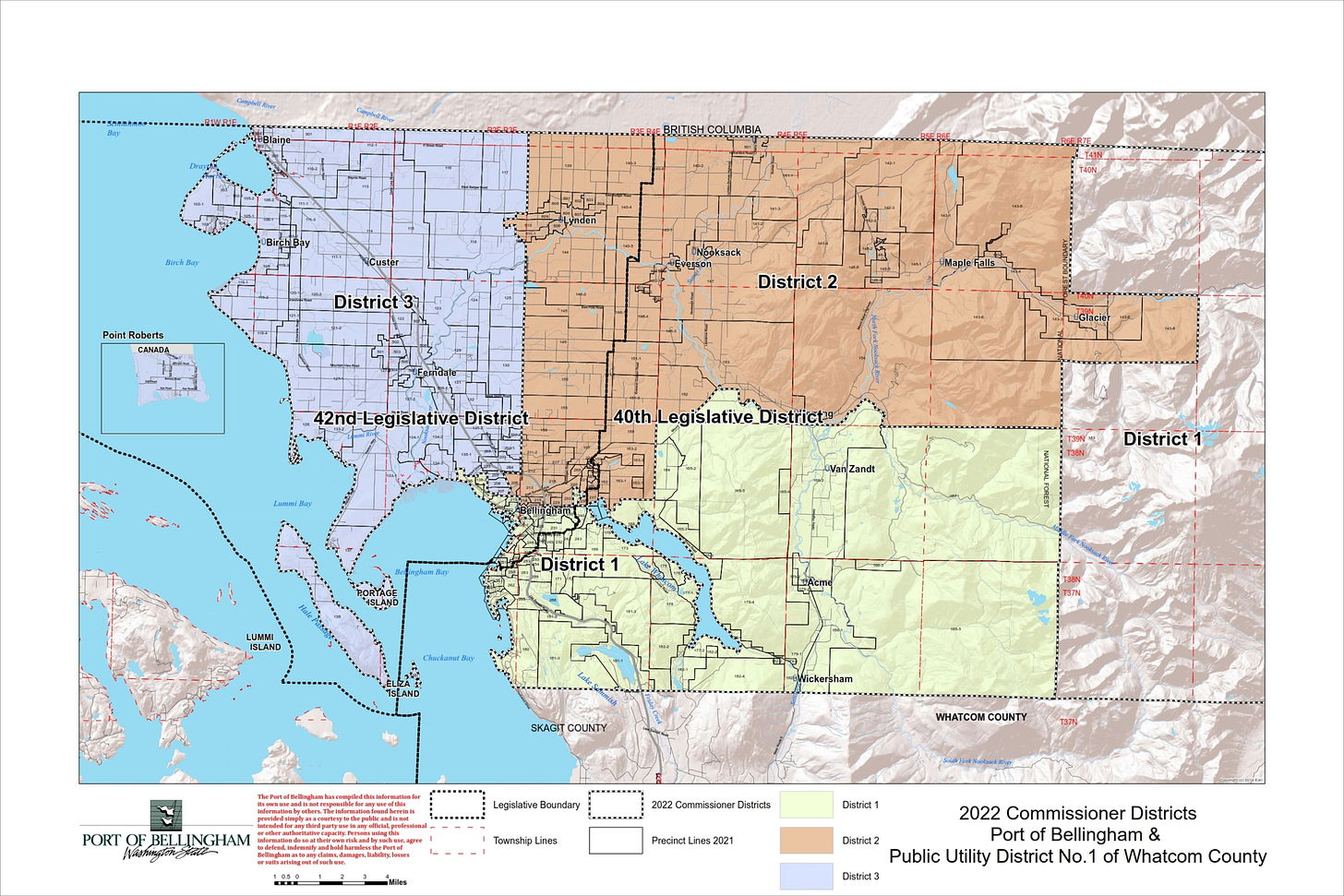
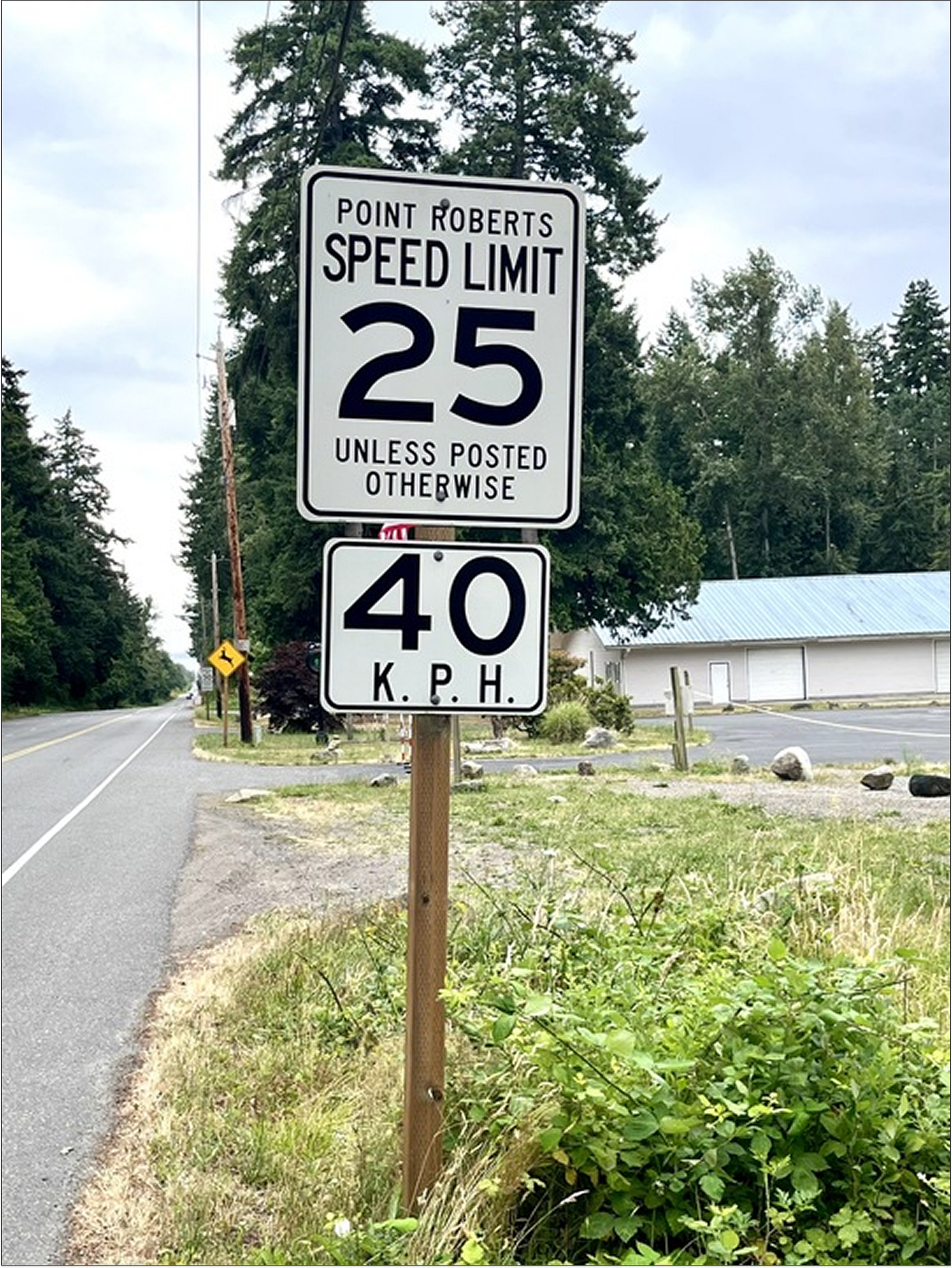

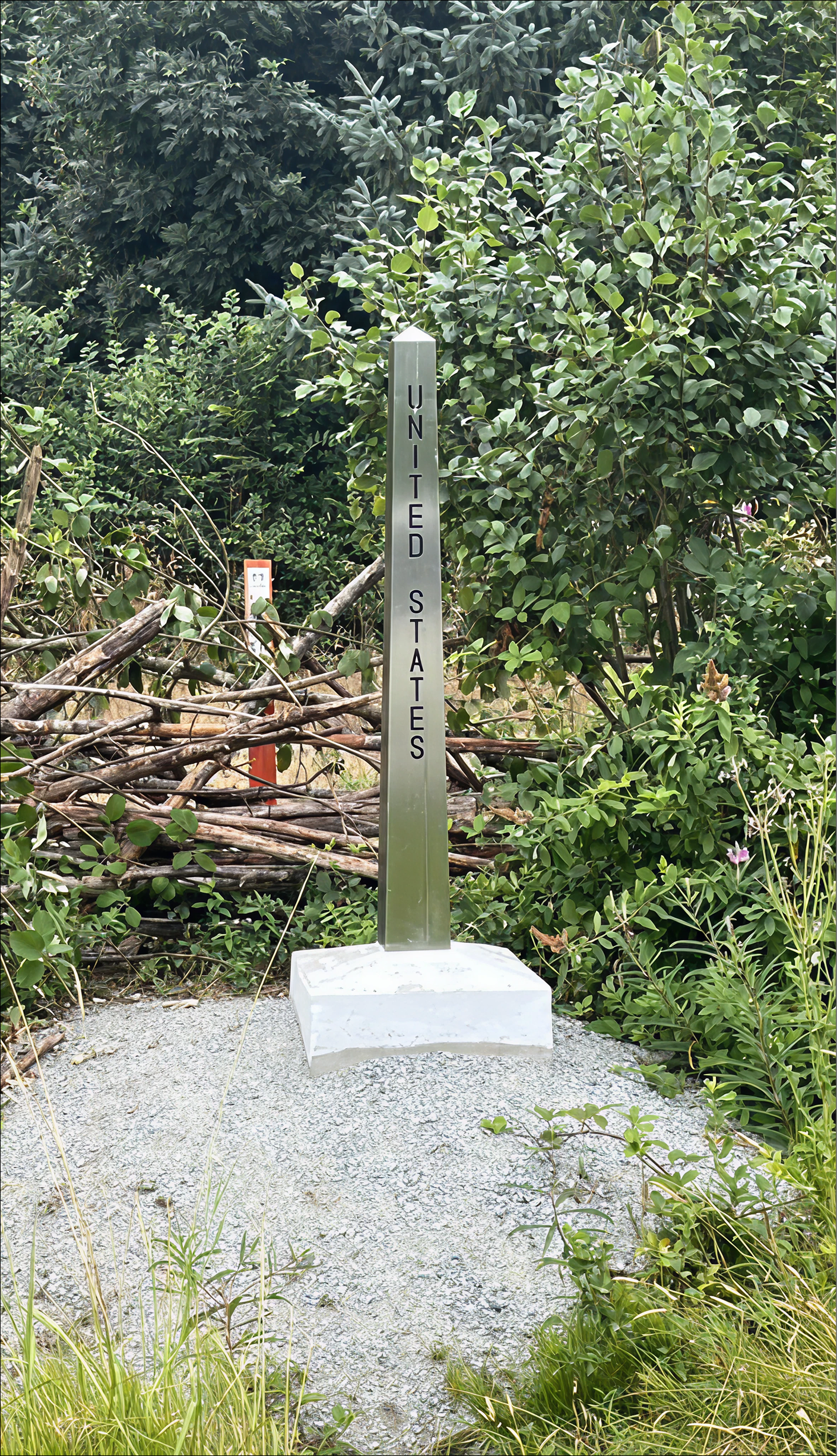
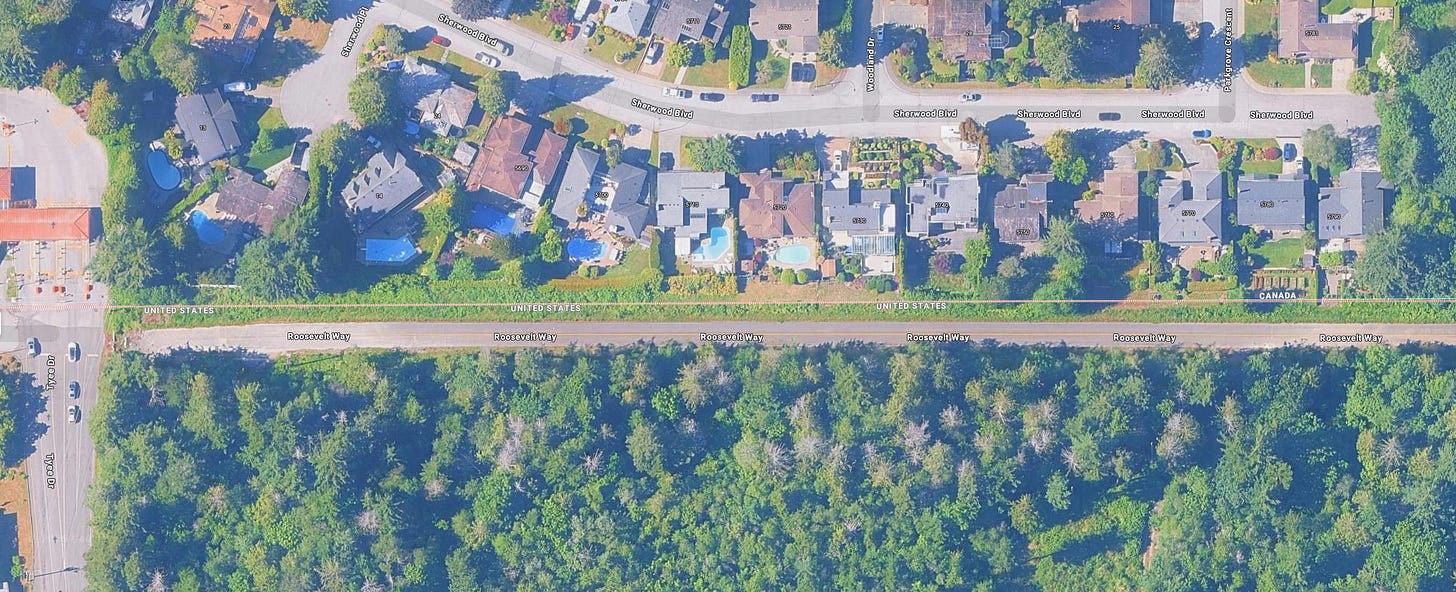
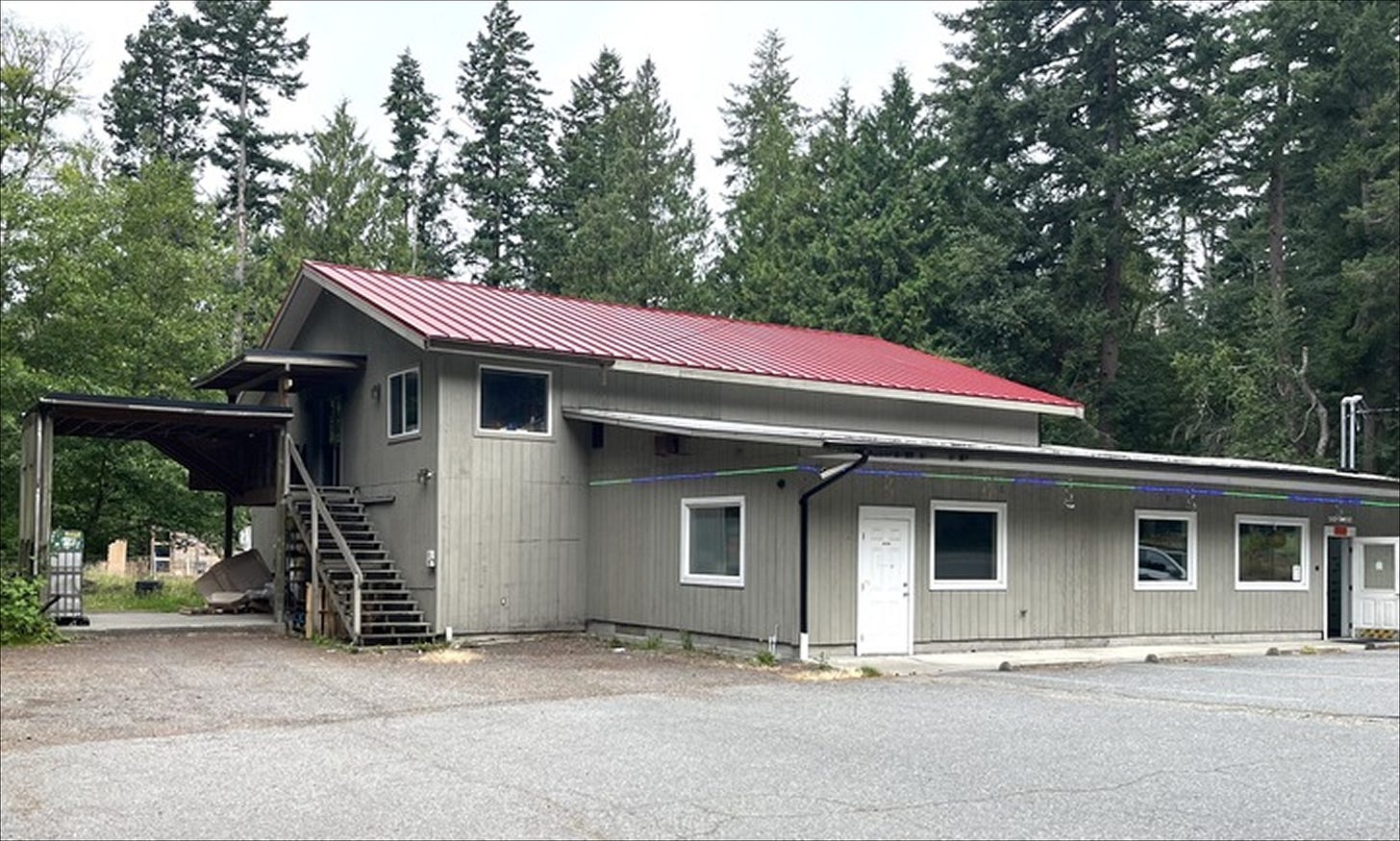
And I was not invited to hang out with you and Emma and Andrew? Truly, Jeff, I am offended.
In the mid 90s my family moved to Ladner, British Columbia for a brief 2 years. We made friends at church with a family in Point Robert’s. Even as a 6 year old kid I was fascinated with the place. It seemed like you could do anything you wanted and yet nobody did anything dangerous.
Luckily I kept up the friendship when my family moved back to the US. All the way in Seattle. It became a summer tradition to meet at a mall near Bellingham and to a “brother swap”. My older brother was also friends with the older brother of that family.
That family ended moving to California some years later, and so I would visit them near Los Angeles. I haven’t been to Point Robert’s in probably 20 years but I still think fondly of the area. I like to describe it as a territorial mistake caused by a blotted quill. Every so often there was chatter of Point Robert’s joining Canada. I suppose it could happen some day. Thanks for the article!